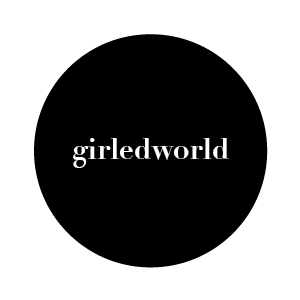STEM matters.
It matters because we know the future of Australia will rely heavily on science, technology, engineering and mathematics (STEM) - disciplines at the core of innovation - to sustain economic growth, compete in the emerging sectors that new technologies will create, and to enable new approaches to cross-sectoral innovative problem-solving for challenges now and into the future.
However, according to the World Economic Forum's Global Competitive Report 2015/16, Australia continues to lag behind most advanced economies in innovation.
The report also highlights that those who graduate in STEM specialties may not be fully equipped to contribute to the creation of an innovative workplace. This problem will only change with improved engagement, collaboration and participation between schools, tertiary institutions and industry, so together they can build STEM pathways, develop and apply world-class educational frameworks and use collective diversity to drive innovation.
But part of the problem is that in order to drive innovation we need to bring STEM course participation numbers up across the board. And when you look at the data, Australia currently has an alarming underrepresentation of women in the STEM sector overall. Like the gender gap, the STEM-der Gap is real.
According to a recent Australian Government National Innovation and Science Agenda Report, only one in four IT graduates and fewer than one in 10 engineering graduates are women.
Further, women occupy fewer than one in five senior researcher positions in Australian universities and research institutes, and around one quarter of the STEM workforce overall.
How do we bridge the gender gap for the future benefit of us all?
We can only do this with a concerted, national effort to overcome the cultural, institutional and organisational barriers and unconscious biases that discourage girls and women from studying STEM, and that limit their opportunities to pursue careers in STEM.
So at girledworld we think part of the solution is to elevate STEM role models to make them visible, thereby inspiring girls, science teachers, educators, entrepreneurs, executives, manufacturers, editors and policy-makers, to work towards a new normal STEM workforce where women are as present as men.
Because role models matter a lot.
Girls can't be what they can't see.
And they don't know what they don't know.
At girledworld we are stepping up to this challenge to take action via advocacy campaigns, education-industry collaborations, industry-supported engagement in STEM, visible mentoring, and by creating direct links between what girls aged 15-18 are learning in school, and showing them this will shape what’s possible for them in their future workforce pathways.
Cultivating, educating and inspiring an interest in STEM at the year 9-12 year levels will help increase the number of girls taking up STEM subjects in higher education and in their future careers, give girls real experiences and understandings of STEM possibilities and workplaces, and will ultimately work to close the gender gap down the line.
But we can’t do this alone.
To do this, girledworld requires the expertise, support and guidance of educators, industry and leading STEM organisations across Australia.
We are honoured to so far have the support and expertise of Women in STEM Australia, WISE (University of Melbourne Women In Science & Engineering), the Melbourne Accelerator Program (MAP), and leading scientists from the MCRI who will work with us to lead by example, paving the way as females leading and driving research and enjoying great careers built on STEM, and encouraging girls aged 15-18 to study STEM subjects.
We are also delighted to announce our 2017 girledworld Big Ideas Conference sponsor Airbnb, who is committed to workforce diversity, women in tech, and addressing the gender balance by changing hiring policy and practice.
According to Elena Grewal, a data science manager at Airbnb in a recentEnterpriseTech article:
“Airbnb is a global community, our mission is to belong everywhere. So it’s really important to have a team that reflects our community, to be able to gain the right kinds of insights from our data, to have people with a variety of opinions and perspectives in the room. We knew this was something we needed to focus on.”
Grewal said the recognition that something had to be done took place in 2014 when the company realized that in the previous year only 10 per cent of new hires had been women.
“This was really a wake-up call that we couldn’t continue the way we were. The women on our team were quickly becoming outnumbered and we knew that having a diverse team was important to us. We weren’t being intentional in our hiring to create as diverse a team as needed.”
Airbnb subsequently adopted a diversity strategy and changed hiring practices to overcome unconscious bias. And the results were impressive: By the end of 2015, the data science group alone had doubled the percentage of women from 15 per cent to 30 per cent.
Girledworld will officially launch next Wednesday October 26, 2016, at the University of Melbourne’s Wade Institute of Entrepreneurship.
Together, we look forward to helping girls step up to STEM, and growing the next generation of female leaders, founders and STEM champions.
We look forward to sharing the journey with you.
If you are a workplace interested in closing the gender gap, building diversity and working with us to encourage girls to step up to STEM, leadership and entrepreneurship, please get in touch here. We’d love to hear from you!
Madeleine Grummet & Edwina Kolomanski
Co-Founders #girledworld
“If you want to change a generation, you start with the girls.”


